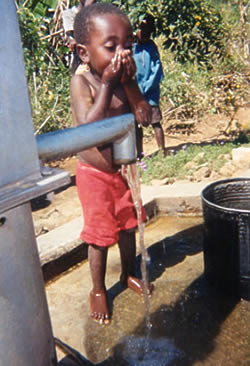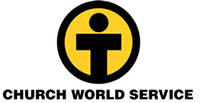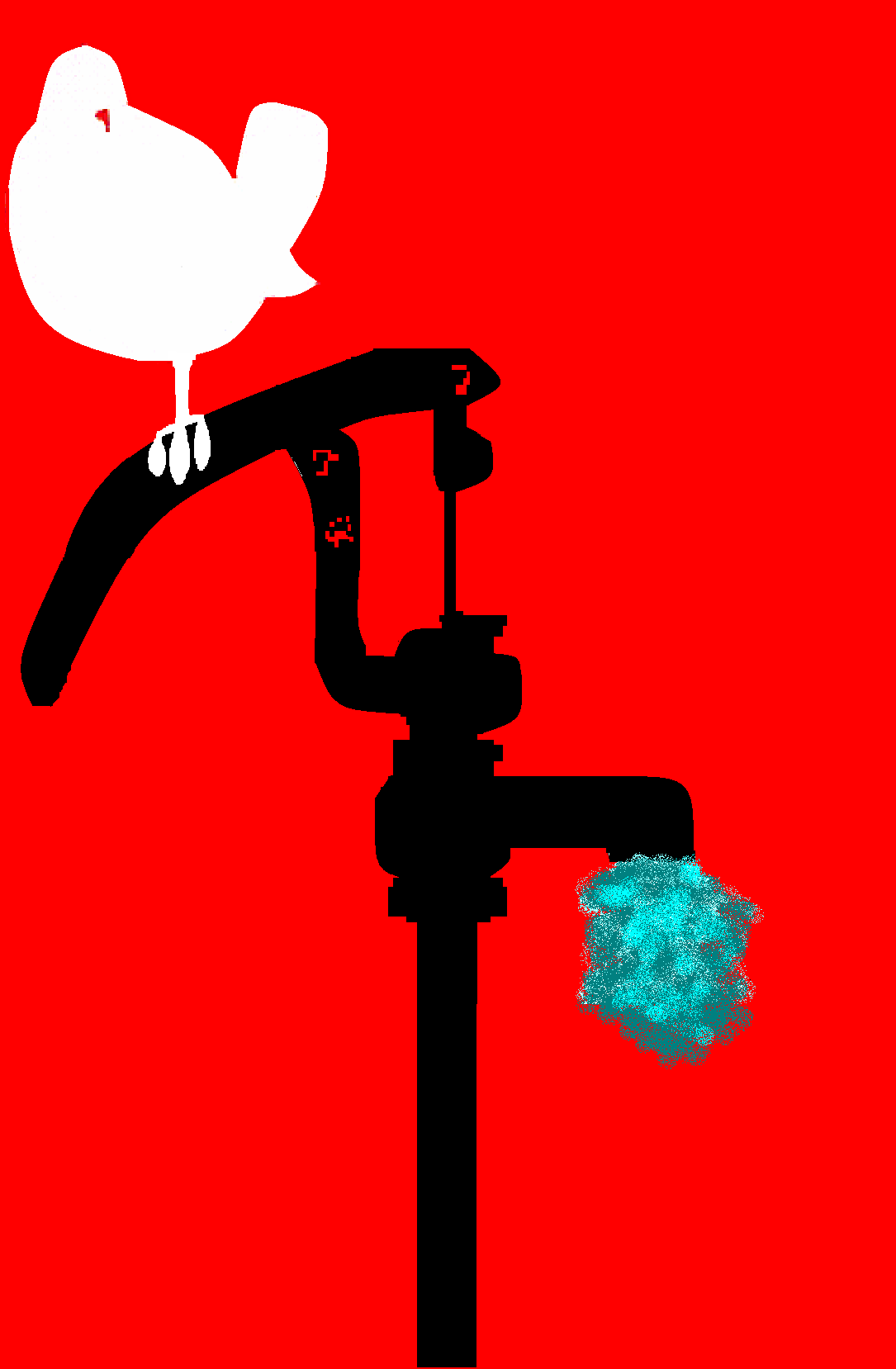Water for Life
More than a third of Africa's people lack access to clean, safe
water. In fact, of the 1.1 billion people worldwide who lack clean
water, 300 million of them live in Africa. Globally, more than 2.1 million
people — most of them children — die each year from waterborne disease. Water
cannot be taken for granted.
Estimates predict that by the middle of this century some
seven billion people in over 60 countries could face water shortages. At the
heart of the threat to future water supplies is the destruction of ecosystems.
Over half the countries in Africa are “water-stressed.” Lack of access to water
affects the life of vulnerable populations, making the simple task of collecting
water a tremendous burden.
CWS supports communities to obtain and manage their own potable water
supplies and watershed sources through:

Water for All: Church World Service regards water as a
responsibility of public service, not as a resource for the few who can afford
to pay. This means preventing policies that narrow the range of available
options — such as trade rules that encourage inappropriate privatization and
commercialization of services — and promoting the ability of local communities
to develop their own solutions.
Water for Health: Church World Service programs improve
health and meet basic needs by providing safe and sufficient water and improving
sanitation conditions and hygiene practices.
Water for Food: Church World Service programs help secure
food supplies with 1) efficient irrigation; 2) use of under-utilized natural
water resources (groundwater, rain harvests, rivers, lakes, and lowland
collections); and 3) mitigation of risks by improving water management in
communities that suffer chronic drought and/or flooding.
Water for the Future: Church World Service programs protect
watersheds. The natural purification and sustainability of water resources
requires ecosystem-based management. Programs integrate traditional water
development with environmental education and land/water use management.
Water for Peace: Church World Service programs support the
peaceful sharing of water resources. Water resource governance brings together
the uses of water (drinking, food, domestic, enterprise, environment, energy)
and users of water (neighbors, communities, administrative regions, and
countries). When conflicting demands arise, Church World Service supports
equitable and efficient water sharing and resource management.

Madzi = Moyo "Water is Life" Program, Malawi
Church World Service seeks funds to drill borehole wells to provide clean
drinking water in the African nation of Malawi. The boreholes will be the
primary focus of an integrated program aimed at achieving long-term access to
safe water resources.
Need: Only 32% of the rural population of Malawi have access
to water within a kilometer’s walk. During dry seasons (May-September) rivers
dry up, increasing the formidable burden of fetching water, which can consume
2-4 hours a day. Poor sanitation and hygiene practices further exacerbate the
potential for deadly water-borne disease.
Target Population: 390 households (approximately 2,340
persons) in three villages in Chitipa District in Northern Malawi. An additional
1,000 persons will benefit from other project outputs.
Partnership & Collaboration: The Christian Service Committee
(CSC) of Malawi is an ecumenical organization which has successfully implemented
more than 1,100 new community water programs. It has the capacity to drill 70
boreholes a year with its own rig, but seeks funds to purchase a second rig to
double its impact.
Project Activities:
- Drill and install pumps for (6) new borehole water
sources in the three villages after assessment surveys.
- Rehabilitate (3) damaged water sources (one in each
village).
- Train water management teams in borehole maintenance,
sanitation, health/hygiene programs (including HIV/AIDS), and environmental
restoration.
- CSC environmental education program will also feature
vegetable growing projects to improve nutrition for participating families.

Outcomes:
- Safe, accessible water for three villages
- Village ownership and effective management of reliable water sources
- Reduction of burden on women
- Significant reduction in water-borne disease
- Improved nutrition
Funding Opportunities: *
- Drill and equip borehole $3,850
- Rehabilitate borehole $1,200
- Train Water Committee $1,250
- Education program (3 sites) $1,800
- 4 x 4 truck to replace very old vehicle to service sites $20,000
Total Program Budget: $65,340

